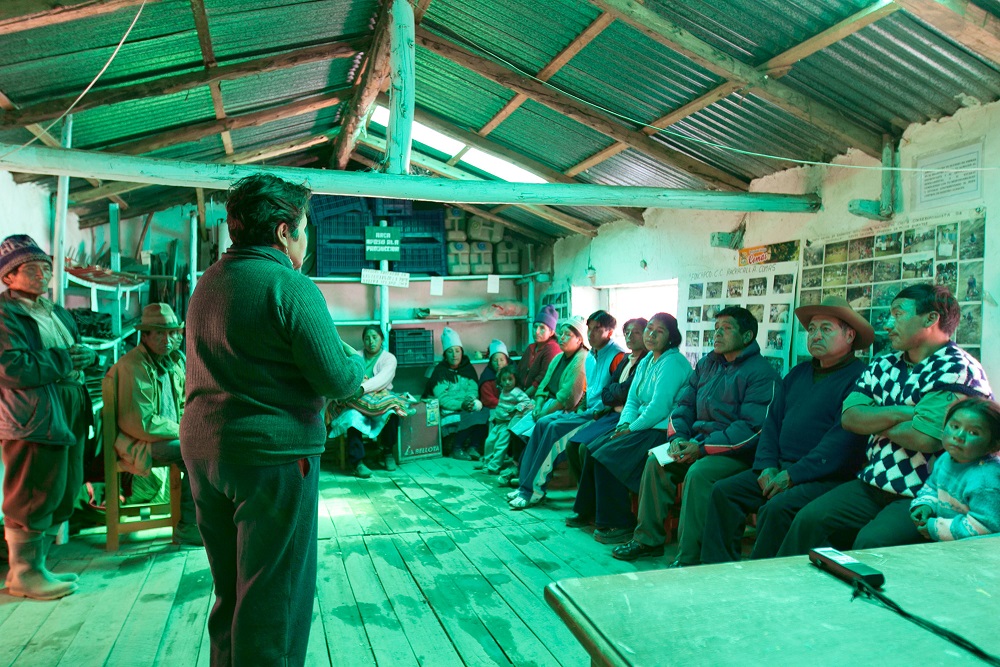Silvia Sarapura’s recent blog post in The New Agriculturist, “Women take the lead in agricultural innovation in Peru”, is a testimony of how a project such as the Papa Andina regional initiative can bring about changes in communities by promoting collective action to stimulate market access for women farmers and improve livelihoods. Papa Andina used and promoted participatory methodologies to foster pro-poor innovation in market chains in order to improve food security and market access for small farmers, and to reduce poverty.
“In the Andes, (…) for smallholder producers in general, the shift to commercialization of native potatoes is a challenge due to a lack of key inputs such as transport, illiteracy and limited exposure to market mechanisms. Women often face additional hurdles, including access to and control over natural resources. So to engage women in the commercialization of native potato varieties and ensure that men and women work together as equal partners, Papa Andina has been working with COGEPAN (the Management Consortium of Native Potatoes) and a local NGO (FOVIDA), with support from the International Potato Center (CIP), to foster innovation, knowledge sharing and capacity development for men and women, and implement specific actions that responded to gender challenges in the value chain…” (read more)
Sarapura, an agronomist and capacity development and extension trainee with a background in Agricultural Innovation Systems, carried out her research study on gender to fulfill the requirements for the PhD thesis she completed at the University of Guelph, Canada, entitled “Gender and Agricultural Innovation in Peasant Production of Native Potatoes in the Central Andes of Peru”.

Silvia Sarapura in an Andean community (photo: Guillermo Yupanqui)
As part of the research process, Sarapura offered tools that brought together action, training and research, including training in participatory video and photography, which were used to document the research. It was also a personal journey as she recorded Andean women in their daily lives.
The fieldwork took almost two years (2009-2011) in Peru’s Huancavelica and Junin regions located in the Central Andes, where Papa Andina worked with FOVIDA Peru and peasant producers in the native potatoes market chain.
“Papa Andina illustrates the centrality of gender issues in sustainable and inclusive agricultural development and the effectiveness of the agricultural innovation system as a whole. Gender assessment and strategies to ensure the participation of women in value chains are important tools to identify the strengths and diversity of actors in innovation systems. R&D institutions play an especially important role in ensuring that innovation benefits small-scale male and female farmers,” she concluded in an article published in the World Bank’s Agricultural Innovations Systems: An Investment Sourcebook.
Sarapura, who has been involved with CIP on numerous occasions, currently works as a Postdoc Fellow at the CGIAR Research Program on Aquatic Agricultural Systems (AAS/WorldFish), working in the Gender Capacity and Organizational Change Initiative.
